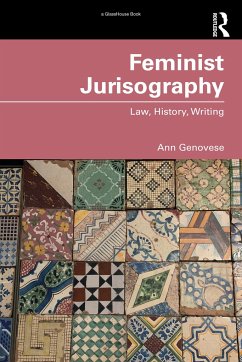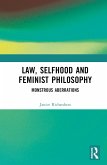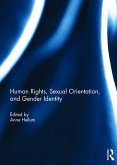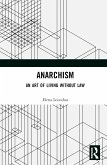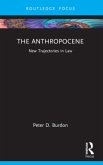This book offers a jurisprudential meditation on and methodological performance of how feminist and legal thought come into relation. This book is about the conduct of one's scholarship and why it requires examination.
Across six essays, the book reintroduces official and unofficial jurisprudence writing of the late 20th century to show how disciplinary methods were transformed, and how relations between people and place, and between law and humanities, were transferred from the periphery to the centre of contemporary scholarship. To demonstrate this story, Feminist Jurisography experiments with genre, style, and form to historicise the relationship of a feminist jurisprudent to her own sources, methods, and interlocutors; and remind that it was feminist intellectuals from 1949 onwards who altered conducts of interdisciplinary scholarship in ways that are underacknowledged today. It exemplifies why naming a practice for yourself is an acknowledgment of relations of difference, collaboration, and inheritance, but also a performance of the feminist tradition of intellectual self-assertion that the book explores.
The book will be a useful resource for scholars and students of law and humanities, feminism, and history, and of value to a general audience interested in feminist ideas. The book will benefit contemporary conversations about the history and status of feminist contributions to these fields.
Across six essays, the book reintroduces official and unofficial jurisprudence writing of the late 20th century to show how disciplinary methods were transformed, and how relations between people and place, and between law and humanities, were transferred from the periphery to the centre of contemporary scholarship. To demonstrate this story, Feminist Jurisography experiments with genre, style, and form to historicise the relationship of a feminist jurisprudent to her own sources, methods, and interlocutors; and remind that it was feminist intellectuals from 1949 onwards who altered conducts of interdisciplinary scholarship in ways that are underacknowledged today. It exemplifies why naming a practice for yourself is an acknowledgment of relations of difference, collaboration, and inheritance, but also a performance of the feminist tradition of intellectual self-assertion that the book explores.
The book will be a useful resource for scholars and students of law and humanities, feminism, and history, and of value to a general audience interested in feminist ideas. The book will benefit contemporary conversations about the history and status of feminist contributions to these fields.
"Scholarship of law in the 21st century demands openness to diversity, attention to ethics, methodological reflectiveness, and above all an ability to reimagine our legal worlds in new ways. Ann Genovese meets these challenges with her highly imaginative and self-reflective book. Feminist Jurisography offers readers an entirely fresh approach to the writing of law as a writing of life. Throughout, the need to experiment with writing, with life, and with ideas is emphasised and the result is a highly engaging account of feminist legal writing as a practice as well as of the writer's journey with and experiences of a vast, sometimes eclectic, and always fascinating oeuvre." Margaret Davies, Flinders University, Australia.
"Feminist Jurisography is a wonderfully radical, innovative, and imaginative text. It explores the relationship between feminism, law, history and writing in an intensely personal manner that has implications for all of us. In tracing the emergence and obligations of the feminist jurisographer, Genovese suggests an intellectual approach for the future." Ann Curthoys, University of Sydney, Australia.
"A powerful and refreshingly original approach to reading and writing about law. Grounded in the analysis of key feminist texts, such as de Beauvoir's The Second Sex, Feminist Jurisography heralds a novel way of making sense of the world from a feminist perspective." Margaret Thornton, Emerita Professor, Australian National University.
"Feminist Jurisography is a wonderfully radical, innovative, and imaginative text. It explores the relationship between feminism, law, history and writing in an intensely personal manner that has implications for all of us. In tracing the emergence and obligations of the feminist jurisographer, Genovese suggests an intellectual approach for the future." Ann Curthoys, University of Sydney, Australia.
"A powerful and refreshingly original approach to reading and writing about law. Grounded in the analysis of key feminist texts, such as de Beauvoir's The Second Sex, Feminist Jurisography heralds a novel way of making sense of the world from a feminist perspective." Margaret Thornton, Emerita Professor, Australian National University.

